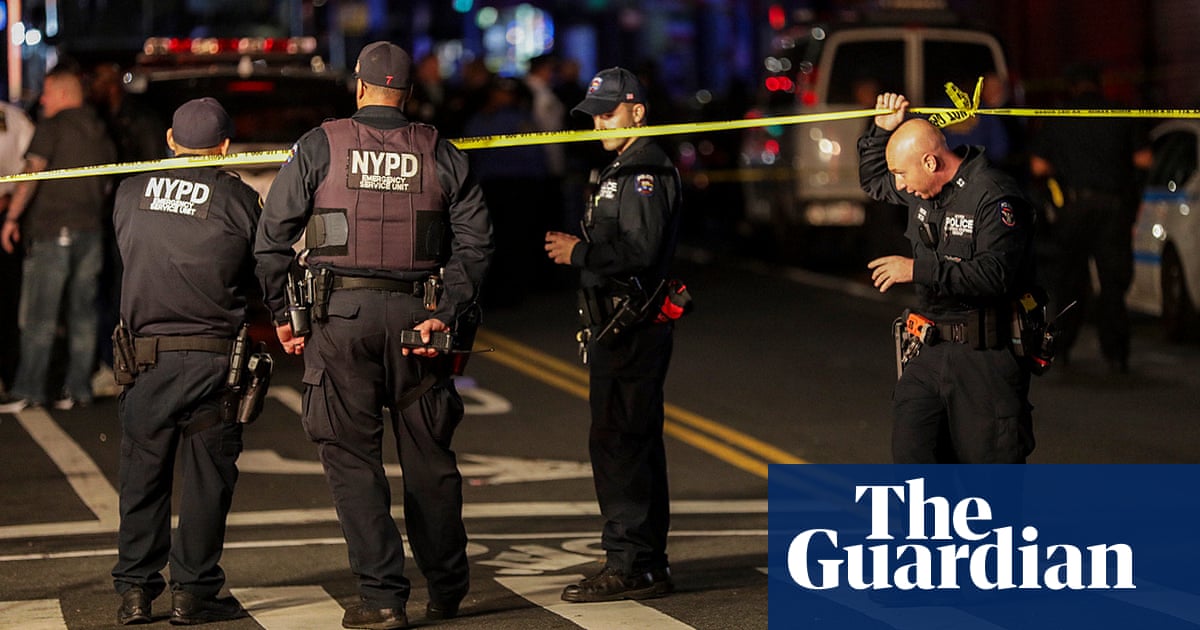Yeah police radio should never be encrypted.
I suspect it would be helpful for protecting sensitive situations. Currently (at least with EMS) they call each other’s cellphones for that, not ideal.
What kind of situations?
EMS communication over unencrypted channels is limited by HIPAA, patient information must be kept vague to protect patient privacy. In the event that, say, an individuals name needs to be given to the receiving facility to facilitate review of records prior to arrival by the ER physician, some other method of communication has to be used.
Encryption on radio communications would not help that at all. It would still be a HIPAA violation to share sensitive information on a broadcast, even if it is encrypted.
Edit: I hope y’all downvoters aren’t actually responsible for patient information.
That’s very incorrect. End to End encryption is legal under HIPPA. All the receiving parties have likely filled out the HIPPA yearly thing, so they’d be covered.
Or fucking use telegram or Whatsapp. Anything except the official equipment.
This is the best summary I could come up with:
The New York police department (NYPD) is facing serious backlash after announcing additional details about its plan to encrypt its radio communications system, which experts warn will limit transparency and accountability.
The entire “upgrade” to a new, encrypted radio system will be completed by December 2024 and cost an estimated $400m, a hefty price tag as several city agencies have been forced to swallow major budget cuts.
Maisel said that during Hurricane Sandy in 2012, when more than 200 people died, he was able to provide public safety updates on social media by listening to the police radio.
The encryption plans also have support from Mayor Eric Adams, who said during a July press conference that “bad guys” are listening to the police radios, the New York Times reported.
Cahn added that police have been unable to provide “concrete examples” of criminals abusing the radio system, especially to justify citywide encryption.
“I really do think that we have a fundamental rule-of-law issue under Eric Adams, where the NYPD continues to be enabled to lawlessly pursue this surveillance agenda without abiding by the protections that already exist under law,” Cahn said.
The original article contains 918 words, the summary contains 190 words. Saved 79%. I’m a bot and I’m open source!
I’m surprised it was nos encrypted already.
Any one can silently hear their frequency. I looks like an easy way to know if police is coming your way, and how avoid them.
Surprised it’s not encrypted in the first place. You haven’t been able to listen to police communications in Finland since the 90’s. I would assume most of Europe is the same way.
Apparently Americans feel like this is a way of keeping taps on what their police do.
It’s interesting. One argument for encrypting is that it keeps private info of the people involved private. But some retort that they can just use other means to communicate that info. But wouldn’t that mean that it doesn’t help keeping taps on the police doing shady shit since they can just use those more secure means of communicating anyway?
I find it fascinating how in the United States police radio communications aren’t encrypted and therefore anyone can listen to them. In my European country all emergency service communications are TETRA encrypted.
Which had/has a built-in backdoor for years.
https://www.wired.com/story/tetra-radio-encryption-backdoor/
EU security forces didn’t really care as TEA2 wasn’t backdoored. It’s a mid-90s standard with different encryption levels for different actors, it should be blindingly obvious that whatever is publicly available is backdoored. You may not like it, I do not like it, but it should’ve been obvious.
The actual own goal was that while all EU security forces always had access to the secure stuff plenty of operators of critical infrastructure (think energy suppliers etc) used TEA1 as that’s what they were given. Also some EU forces bought TEA1 equipment presumably because they didn’t know what they were doing, with or without help from manufactures with an overstock of TEA1 radios.
Here’s a 37c3 talk about the whole thing, from the people actually breaching the protocol.
Aside from those encryption issues (which are finally getting addressed btw) TETRA is a great protocol, though. By now a bit dated so bandwidth isn’t exactly stellar (forget video streaming or such) but devices can talk directly to another just as in olden times, setting up a base station simply increases range, radio channels are now virtual, it’s all very sweet. Basically TETRA is to radio what GSM is to rotary phones. Which, as GSM phones don’t tend to be wired, makes a hell a lot more sense.
It seems insane that they were communicating out in the open.
On the one hand, you probably hear all kinds of cool shit. On the other hand, how in the fuck are they just discussing all their sensitive shit out in the open??
They actually need to focus on hospital communications. It’s scary what all you can pick up from paging systems in cleartext with a $20 USB SDR and a laptop. Patient names, rooms numbers, alert codes, everything.
Your comment is intriguing, are thesewhat you recommend?
It’s insane it hasn’t been encrypted ages ago. Bizarre
just the police doing everything they can to make sure that no one ever knows what they’re doing because they’re such great big heroes that we normal people just can’t handle their awesomeness
Are they switching to use Whatsapp?
If you have nothing to hide, you have nothing to fear (or something like that)
i’m all for full transparency regarding all police activity - i’m not for full realtime transparency regarding all police activity.
active shooter scenarios, violent crimes and everything that invites rubbernecking (read: situations where MORE people are a bad idea, which is most police/ambulance business) should probably not attract people; a 24h delay for release would be enough tho.
my inner cynic already tells me - without searching - that noone thought about automatically releasing the info after a delay. :-(










